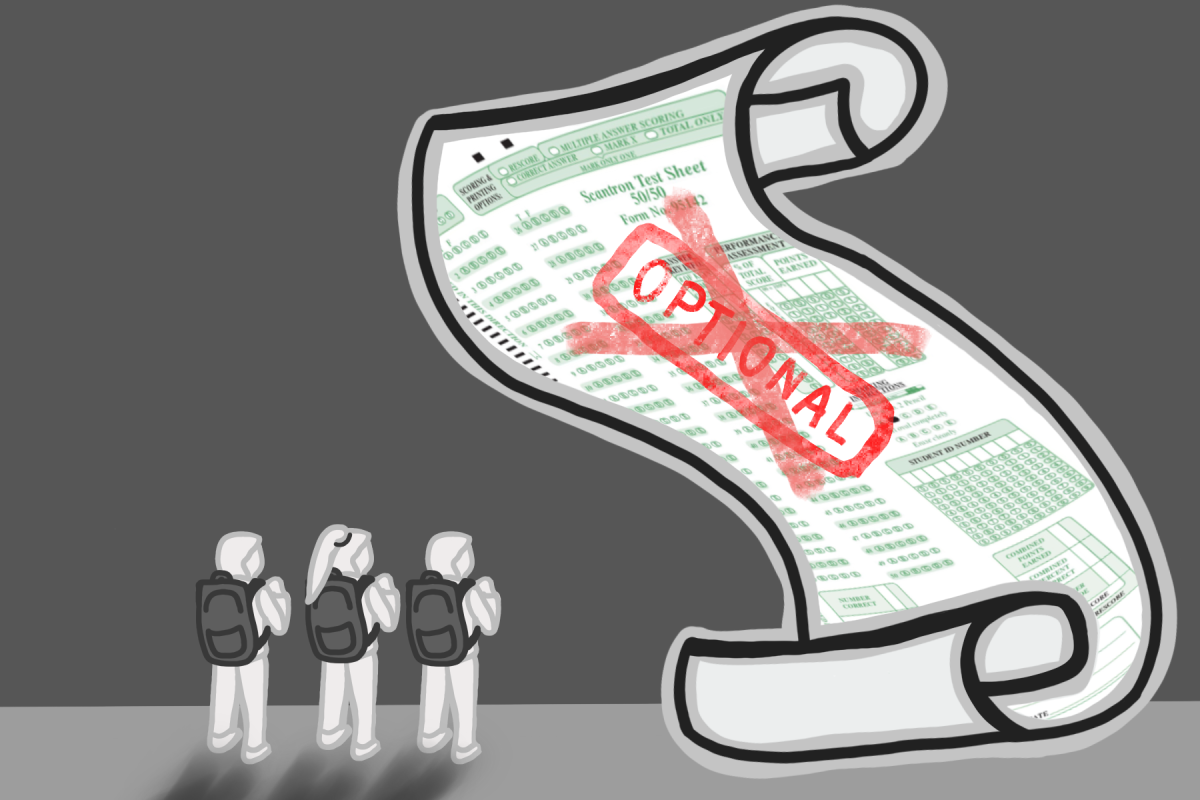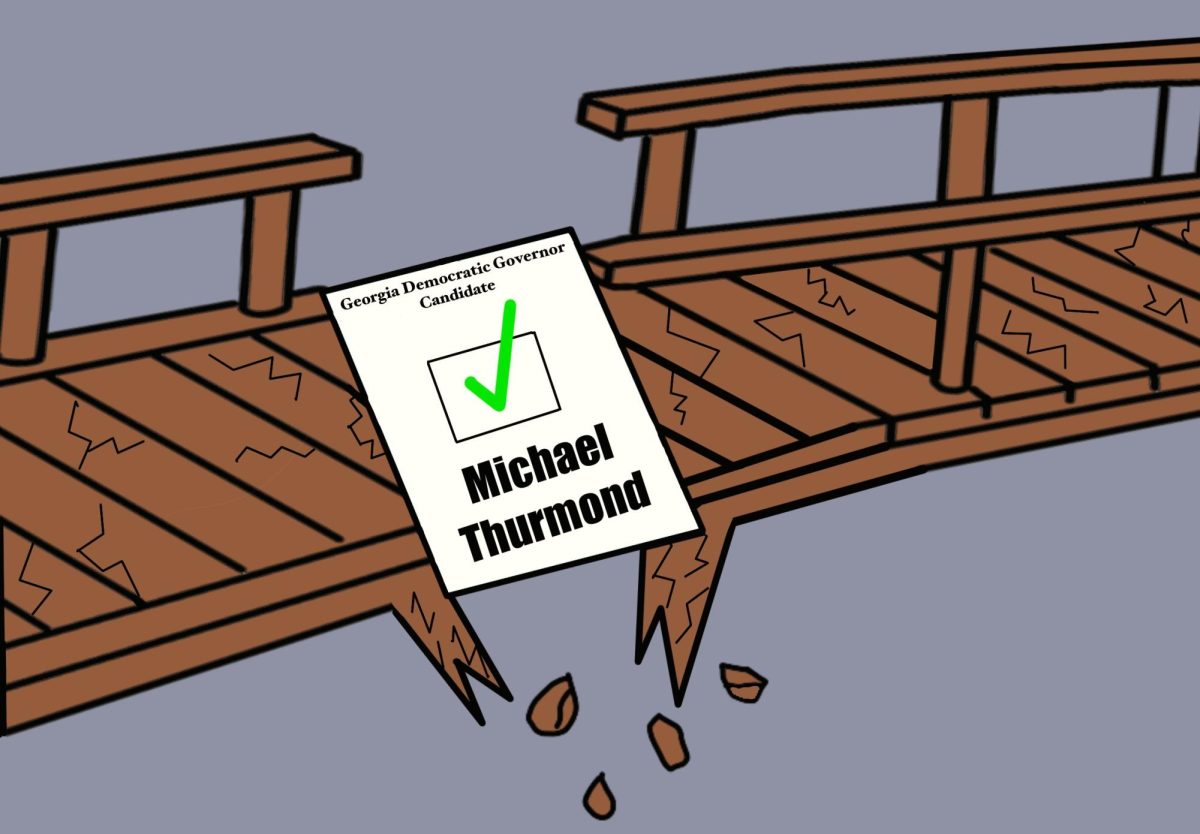In 2010, the Common Core, a nationally proposed set of educational standards, was adopted by the Georgia State Board of Education. Since the acceptance of the Common Core, schools around the state have worked, with varying degrees of success, to apply these standards to their courses. But on Feb. 25, just four years later, the Georgia State Senate passed Senate Bill 167, a bill that would eliminate the Common Core standards, and return Georgia public schools to operating under the Georgia Performance Standards (GPS) that were in place prior to the implementation of the Common Core.
An amended version of the bill was voted down 13 to 5 in the House Education Committee on March 12. State Senator William Ligon, the original sponsor of the bill, pushed it through the State Senate, but announced his disapproval of the amended version in a press conference on March 12.
Prior to the bill failing in the House, however, Ligon noted his full support for the abolishment of the Common Core.
“The Common Core framework was handed down from national interests to the states in a manner that contradicts the constitutional principle of federalism,” state Senator William Ligon said in an email to The Southerner. “A key question should always be, ‘Are local parents and taxpayers able to guide educational decisions in their local school systems?’ and the Common Core doesn’t allow that.”
The bill was passed in the state senate 34-16, with six senators abstaining from voting. SB 167’s proponents cited problems with the Common Core mathematics standards, and violations to students’ privacy, they believe that the Common Core allows for too much data to be collected from individual students. According to sponsors, the primary purpose of the bill is to return educational authority to Georgia citizens.
But SB 167 does more than just repeal Common Core standards. The bill also frees the state of any obligations or contracts regarding student testing by third party or out of state entities.
“Nothing in the language of the bill prohibits norm-referenced testing, such as the SAT, ACT, and PSAT,” Ligon wrote of the portion of the bill nullifying out of state contracts. Ligon said that the reason he sponsored the bill was to advance the education of Georgia students as well as their preparation for college.
Democratic state Senator Jason Carter, however, has major issues with the bill and thinks that the Common Core should remain in Georgia.
“I think that there is troubling language in SB 167,” Carter said. “While I certainly don’t think the Common Core is perfect—there are problems with the implementation of it and teachers support—I don’t think it is anywhere near bad enough to do away with.”
A major complaint of those against the Common Core is that the standards for mathematics only lead to Algebra II, and do not prepare students for college level mathematics. In a letter written by 34 people, and supported by a petition of 1415 people sent to Gov. Nathan Deal, retrieved from Georgia’s Stop Common Core website, opponents of the Common Core stated, “The CCSS (Common Core State Standards) fail to even advance beyond an incomplete Algebra II course,” and also, “CCSS moves Algebra I to ninth grade, stops with Algebra II, and makes it difficult if not impossible for the great majority of Georgia students to reach Calculus in high school.”
Ligon wholeheartedly agrees with these complaints.
“At the lower grades, teachers are required to teach math concepts before teaching procedural knowledge and content that would allow mathematical fluency to develop naturally,” Ligon wrote. “Under Common Core, elementary school teachers waste valuable time using confusing methods, and must delay the teaching of standards that have stood the test of time.”
On the other hand, Grady Calculus teacher Andrew Nichols disagrees.
“The Common Core is a perfectly good curriculum that should not be thrown out,” Nichols said. “It goes all the way up to pre-calculus, and stops before AP classes, just like every curriculum in the past.”
Nichols opposes the bill due to the fact that the Common Core is a nationally developed set of standards that he as a teacher finds acceptable.
“Math is math, there’s no other way to put it,” Nichols said. “There’s been millions of dollars spent on developing this national, comprehensive curriculum. They need to pick one and stick with it. As teachers, giving us a new curriculum every few years makes it impossible for us to advance.”
Carter also disagrees with the complaints about the level of the Common Core curriculum.
“The Common Core is a floor, not a ceiling,” Carter said. “This bill is an example of something we need to be careful with. I think that the state leadership is overreacting to problems with implementing the standards, and that the discussion on this bill has been driven by a lack of understanding about the Common Core.”






